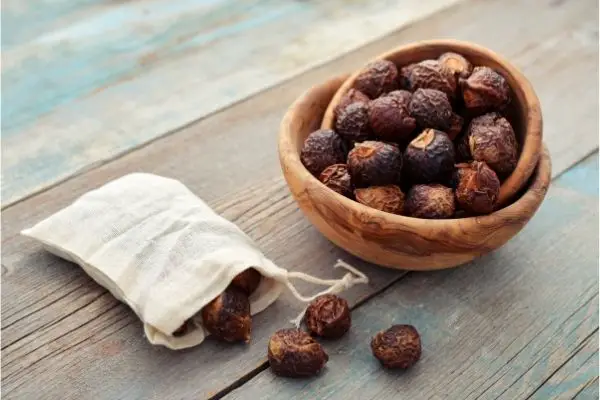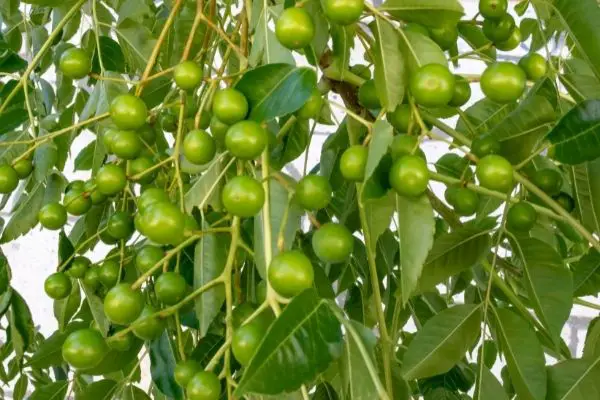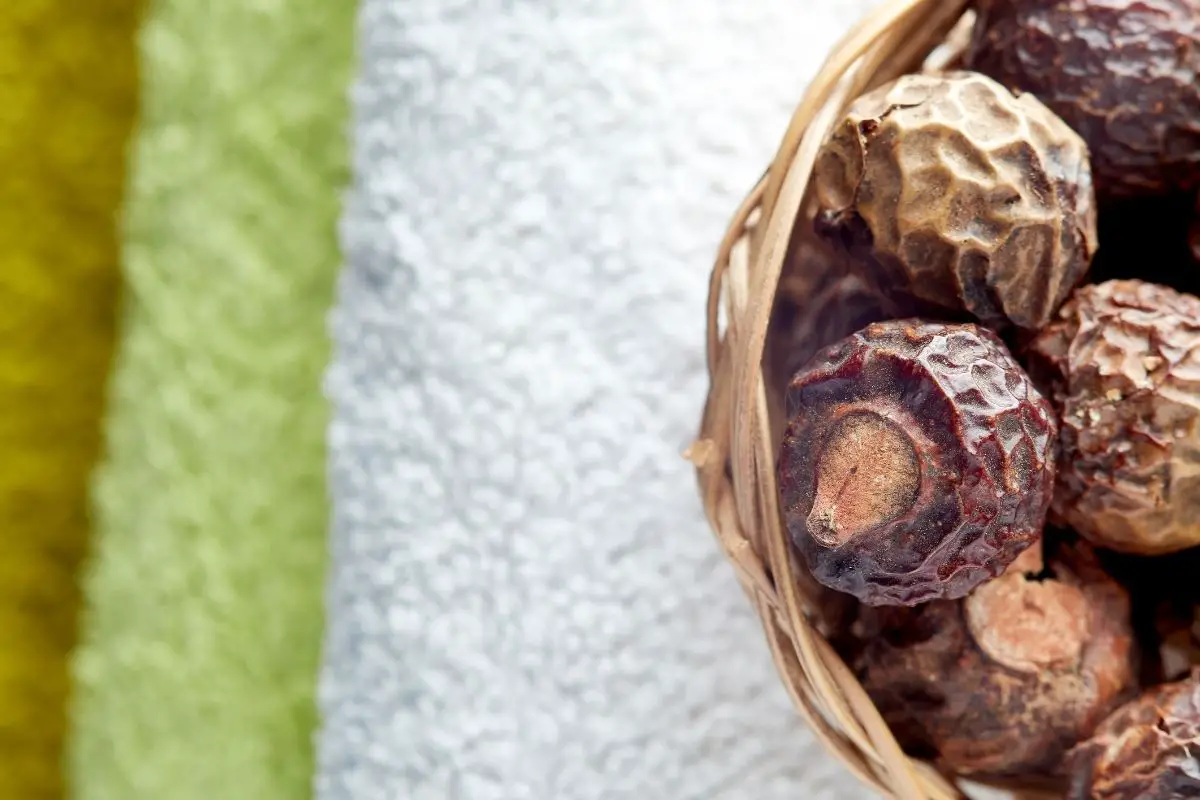What are Soapberries (soap nuts)? Eco-friendly laundry options
Soapberries (or soap berries) or soap nuts are a fruit that is rich in ‘Saponin’ – the tree is officially called Sapindus Mukorossi. Saponin is the same component that is present in quinoa and it is what makes it go ‘foamy’ – just like soap – when rinsed with water! Sapindus Mukorossi is from the same family as lychees!
While saponin can be toxic when ingested (hence the recommendation to thoroughly rinse quinoa before cooking and eating it), it makes a great cleaning product for clothes washing and general cleaning.
As opposed to traditional laundry detergent (including eco-friendly laundry detergents) that have a multi-ingredient formula, soap nuts are a one-ingredient solution.
Soapberries have become famous due to their laundry cleaning abilities, however, they are excellent in other areas of the house too. In fact, laundry aside, you can use them as a surface cleaning product, body and hand soap, shampoo and dishwasher detergent.
What are the advantages of using soapberries?
They are 100% natural, pipe-safe, hypoallergenic, palm oil-free and cruelty-free (100% vegan). Most importantly, they are efficient at cleaning.
Soapberries are prevalent in the Himalayas region. Although there are Chinese-grown soapberries, these are not currently compliant with USDA’s Agricultural Organic Safety Standards & Regulations.
What are soapberries used for? Is it only for laundry?
Soapberries can be used in different ways as a cleaning agent. Laundry detergent is probably the most common use for it, however, they can also work as surface cleaning and dishwashing liquid.

Let’s have a closer look:
How to use soap berries laundry detergent
Laundry detergent is the most common way to use soap nuts. To do so, you can place about five berries inside a small cotton bag – most brands will provide this bag with the soapberries – and place it with your dirty clothes.
Another option is to turn these nuts into liquid laundry detergent. That can be done by boiling berries in water, then blending (with an electric blender) and straining the liquid into a clean bottle. Since this is a natural product it will go off with time, we recommend keeping it in the fridge (or even freezing this liquid using an ice cube tray) to delay mould growing activity.
Most reviewers agree that soapberries are very efficient at cleaning their clothes, although there seems to be some disappointment when it comes to very dirty clothes and whites.
The berries normally last for about four or five loads, before they wear off and only little crumbles remain. At this point, you can save the leftovers to make a multipurpose surface cleaning (see point below for details) or they can be safely added to your compost.
Washing machines aside, soapberries can be used as soaking agents.
Soapberries as general house cleaning product
Soapberries can be the basic cleaning agent in homemade surface cleaning spray.
There are many recipes around, but they mostly consist in boiling soapberries in water (the ratio is about 2 tablespoons of soapberries – you can use the leftovers from your laundry to 2 cups of water), then mixing a preservative agent such as citric acid (half teaspoon for the ratio above) and your favorite essential oil – I love lavender and tea tree oil. Pour the mixture into a spray bottle and you have your multipurpose surface cleaning.
Soapberries as dishwashing detergent
The most efficient way to use soapberries as a dishwashing liquid is to fill in your sink with warm water, add the berries and stir the water for the saponin to foam. From there, you can wash your dishes as per usual.
To be honest, I have not tried this method with very dirty super greasy dishes. My recommendation though is to pre-soak it before scrubbing and washing it with soapberry water.
Are soapberries the same as other eco-friendly laundry detergents?
From a chemical point of view, they are very different things used for the same purpose.

Soapberries are a fruit and what you get at home is pretty much how you find them in nature. Traditional detergents, including eco-friendly laundry detergents, are made from a combination of different ingredients.
Are soapberries better than eco-friendly laundry detergent sheets?
Soapberries are 100% natural while eco-friendly laundry sheets (such as Earth Breeze laundry sheets) are much closer in terms of formula composition to traditional detergents. Laundry sheets are probably more efficient when washing very dirty clothes or getting rid of stains. Laundry sheets are still a great eco-friendly alternative as most of them have no plastic packaging.
What are the best soap nut brands to use?
The best products are those ethically sourced from the Himalayas region – such as NaturOli soap nuts. We recommend avoiding soapberries made in China as they are not currently compliant with USDA’s Agricultural Organic Safety Standards & Regulations.
Are soapberries cost-effective?
Yes, they are very economical as they can be repeatedly used in your washing machine and leftovers can be boiled and turned into a multipurpose cleaning.
Final Thoughts on Soapberries
Soapberries are a great sustainable and cost-effective option. While I have become a big fan of soapberries, I still recommend complementing their use with plastic-free laundry sheets. To see soapberries in use, you can watch this video:






